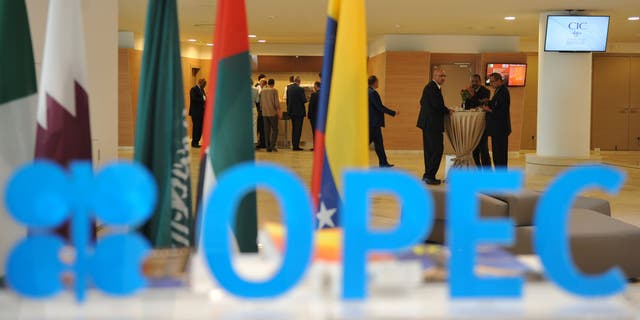
President Biden is doubling down on his push for an economy-wide transition to clean energy sources like wind and solar even as energy prices soar in response to global fossil fuel production cuts.
On Monday, after the Organization of the Petroleum Exporting Countries (OPEC) announced massive oil production cuts, the White House issued a joint statement with the European Union reaffirming that clean energy adoption is critical for enhancing energy security. The statement was a status update on the U.S.-EU Task Force on Energy Security formed amid Russia’s invasion of Ukraine last year.
“Recognizing that clean energy as well as energy efficiency, and demand flexibility measures are essential to enhancing energy security and accelerating the energy transition, the Task Force has exchanged information on policy and market solutions to accelerate the deployment of energy efficiency technology, heat pumps, smart thermostats and related awareness raising activities among consumers and relevant stakeholders,” the White House stated.
“The Task Force also discussed solutions for reducing gas and electricity use and costs through flexible demand response mechanisms that reward customers for reducing or shifting their energy usage,” it continued.

President Biden has aggressively pushed green energy in an effort to curb fossil fuel reliance and fight global warming since taking office in January 2021. (Reuters/Jonathan Ernst)
However, the statement came as OPEC, the powerful Saudi-led cartel of oil-rich nations, announced production cuts of nearly 1.16 million barrels per day. In addition, the group’s Russian counterpart announced a production cut of 500,000 barrels a day in February.
Led by Saudi Arabia, which also said it would cut production by 500,000 barrels per day, Iraq, United Arab Emirates and Kuwait also reduced production by significant levels. Kazakhstan, Algeria, Oman and Gabon cut additional production.
WHITE HOUSE BLAMES PREDECESSORS FOR BIDEN APPROVING MASSIVE OIL DRILLING PROJECT
“This will bring the total additional voluntary production adjustments by the above-mentioned countries to 1.66 million b/d,” OPEC said in a statement after a meeting of its Joint Ministerial Monitoring Committee. “The Meeting noted that this is a precautionary measure aimed at supporting the stability of the oil market.”

Following OPEC’s announcement Monday, global oil prices surged more than 6% past $80 per barrel. (Ryad Kramdi/AFP via Getty Images))
In response to the large cuts, the two major global oil indices skyrocketed past $80 per barrel. The West Texas Intermediate index, the U.S. oil benchmark, surged 6.28% to $80.42 per barrel and the Brent crude index, the global oil benchmark, ticked up 6.14% to $84.64 a barrel.
The OPEC announcement also came months after the cartel said in October it would cut production by 2 million barrels a day, the largest reduction since the COVID-19 pandemic began in 2020. The White House, which has repeatedly asked OPEC producers to drill for more oil to sustain low global prices, expressed disappointment at the time.
CLICK HERE TO GET THE FOX NEWS APP
“The president is disappointed by the shortsighted decision by OPEC+ to cut production quotas while the global economy is dealing with the continued negative impact of Putin’s invasion of Ukraine,” White House national security advisor Jake Sullivan said on Oct. 5.
“At a time when maintaining a global supply of energy is of paramount importance, this decision will have the most negative impact on lower- and middle-income countries that are already reeling from elevated energy prices.”








